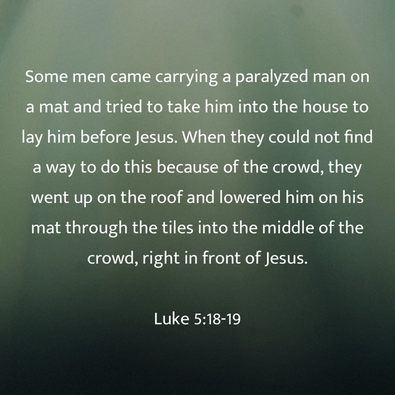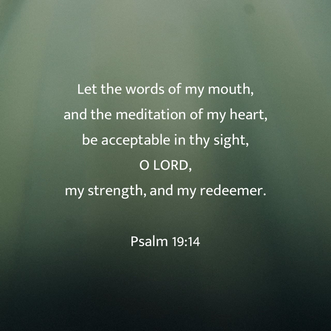|
Good morning! We're so glad you decided to join us today! When we meet in person, we share our joys and concerns together. Take some time to think over your past week. What prayer requests do you have? If you feel comfortable, you can share your requests in the comments below. When you ready, you can get started with this prayer (source), which should somewhat go along with our lesson. Forgive me, God, for being so busy being busy that I don't intentionally take time to be refreshed in your rest. Teach me gently, Father, that I need this weekly rest in your presence and with my family to be all that you want me to be, and all that I can be. Restore my soul, O God, and fill me with your restful joy. In Jesus' name I pray. Amen. This week's lesson is on Exodus 23:1-12. Lesson Context Today's passage is part of a larger piece (Exodus 21-23) often called the Covenant Code. It gives foundational rules for ancient Israel's corporate life. The laws explained how people were to conduct themselves in typical, everyday situations. It is the basis of longer discussions in Leviticus 17-27 and Deuteronomy 12-26. The Covenant Code comes immediately after the Ten Commandments. The longer list of the Covenant Code repeats itself and arranges topics more by association, as in today's lesson. The sequence of the laws influences meaning. Readers should not think of them as sound bites but as a web of required behaviors that collectively reflect the character of those practicing them. The reading for today concentrates on issues of justice. The two major sections seem to be about different topics. However, they use the same sort of lock-and-key organizational technique common in Israelite legal texts and in the book of Proverbs. That is, several statements on obviously related themes follow each other. Then the topic seems to change, and then it returns to the original subject. This pattern challenges the reader to see previously unconsidered dimensions of both the main idea on the ends of the list and a seemingly different idea wedged into the middle. Justice in Court and Home (verses 1-8) The first verse in our lesson seems to say the same thing twice. However, they are a little different. The first sentence offers a general command against lying because it harms another person. The second sentence specifically forbids conspiring with another person to lie in court. Our book says that cooperating with others to harm a third party undermines any justice system and leads to societal conflict and violence. When a legal system is corrupt, everyone eventually suffers. The passage continues by telling the ancient Israelites not to determine correct behavior by what everyone else was doing. It may also be read as forbidding mob action. It seems that not much has really changed with people. We still struggle with following the crowd. The law forbids bending the legal system, even when it seems to even the playing field. Favoritism should not be shown to anyone. Judges must decide cases solely on the evidence. The next section seems to completely change direction into dealings with enemies. This makes the law practical. Even when a person is hated, Israelites were not to hate and be vindictive in return. Further, the Israelites were to help their enemies, like with the fallen donkey. The passage then returns to the courts. Anyone involved in a dispute, especially a witness or a judge, must decide fairly without regard to external factors such as the socioeconomic status of the person involved. Further, there can be no lying. Think of how often we have heard (and voiced) half-truths or quotes of others out of context. But the command here broadly required an Israelite to stay far away from deception. God will not cheapen his gift of redemption by turning a blind eye on wickedness. Our book says the word translated bribe appears 26 times across 24 verses in the Old Testament that results in injustice against an innocent party. Bribery can be thought of as purchasing a certain outcome in court. It could even go as far as ensuring the slaying of an innocent person. Thus these bribery texts imply the threat that this corrupt practice posed to the entire social structure of ancient Israel. The reason for avoiding bribery is that such an action corrupts the very character of the ones involved. A system that tolerates such behavior sooner or later decays into conflict as distrust builds. The last part of our passage deals with justice in economic matters. It opens with treatment of foreigners. The migrant or foreigner is often living away from a support system of family and friends. The foreigner in Israel would not have had a support system. Therefore, laws were needed to protect that person. The Israelites had been through this when they were in Egypt. So, they needed to show empathy toward similarly vulnerable people, honoring their divinely given rights. Further, Exodus 22:21-24 links foreigners with widows and orphans as vulnerable people lacking family ties and, therefore, social protection. The end of our lesson deals with the sabbath. There was to be a sabbath year. Our book says that it is unclear whether this law required all land to lie fallow in the seventh year, or if a rotation of crops should occur. Leviticus also discusses this, and expressly forbade sowing any seed during the seventh year. In order to survive, the people had to trust in God's care for them. The sabbath day is also discussed. This version of the sabbath law names those members of the household most vulnerable to self-centered action on the part of the family head. So, the slave born in your household as well as the foreigner living with the family ad the right to rest just as much as did the citizens of Israel. Conclusion One of the most powerful treatments of the nature of God appears in Exodus. It contains a richly layered set of stories exploring the question "What sort of God do we have in our midst?" This story lies behind all of Israel's laws. Rather than creating a long philosophical discussion on God, the scroll of Exodus weaves together stories about divine actions and conversations around them. As it reveals a God who practices a radical commitment to mercy, Exodus does not avoid the challenges that belief in a redeemer God poses. The 600-plus laws in the Old Testament do not address every imaginable circumstance. Even so, they lay out enough specific examples to allow thinking people to figure out how to act in situations not explicitly named. The Law of Moses invites reflection. Those following it ask questions that will shape commitments and attitudes for a lifetime. A remarkable feature of today's church in much of the Western world is its distance from the poorest among us. American Christians, in particular, often seem to live in a bubble. Wealth is taken as proof of God's blessing, which can lead us to blame others for their alleged failures if they do not obtain it. We are slow to acknowledge how decision of past generations still affect people's lives. And those most vulnerable pay the price for that self-deception. The Law of Moses, while aimed at the people of Israel, offers guiding principles for the church as well. Life together requires practical actions that show love for difficult people. In this way, we can fulfill the law: to love our God, and to love both neighbors and enemies, wherever they are found. Questions for Discussion What can you do better to resist temptation to go along with the crowd? Our lesson talks about oppression. What are some examples of cases in which doing nothing was actually a form of oppression? What steps can you take to achieve a better balance between work and rest? Prayer Father, continue to teach us to be generous to our enemies, loyal to our friends, honest in all of our dealings, and compassionate toward all in need. Make us people who always treat the poor with respect and care. In Jesus' name we pray. Amen. Benediction This week's benediction is from the New International Version. Next week's lesson will be on Deuteronomy 16:18-20; 17:8-13.
0 Comments
Leave a Reply. |
AuthorWe are a small, rural Presbyterian church in southwestern Pennsylvania. Archives
July 2024
Categories
All
|



 RSS Feed
RSS Feed